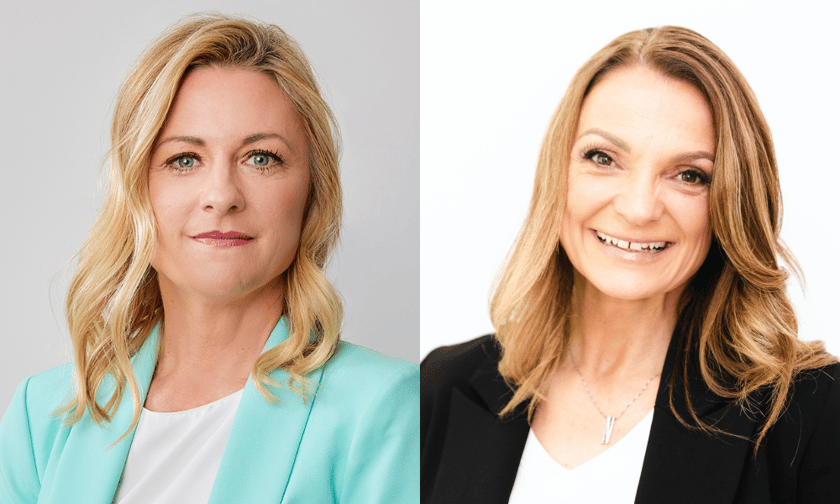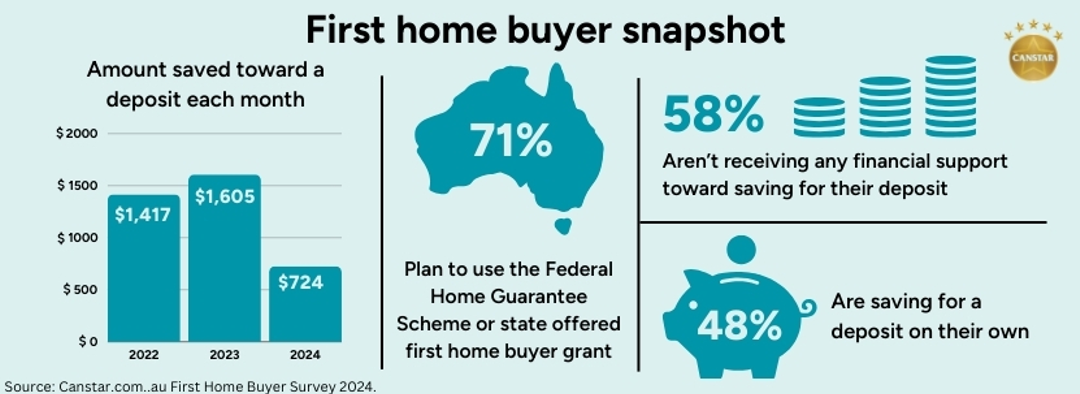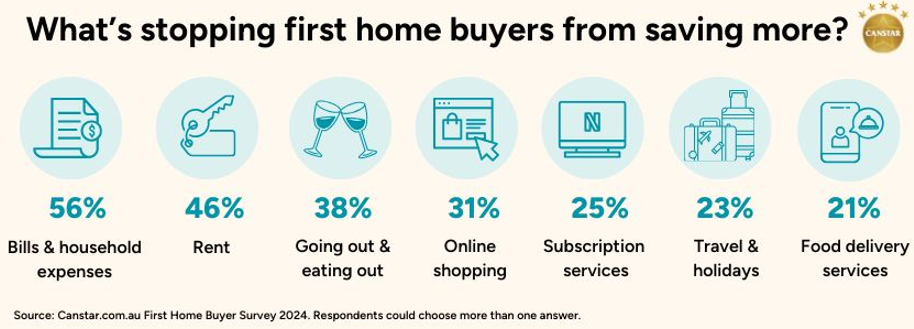

By
The rising cost of living has been blamed for eroding the savings power of first home buyers, although a broker in Victoria said poor savings habits may be playing a big role in their struggle to save.
Newly released Canstar research from its 2024 First Home Buyer Survey has found that first home buyers are saving less than half of what they were a year ago.
The average saver is now putting aside $724 a month toward the purchase of a first property.
The Canstar survey of 974 Australians saving for a first home found savings were down on the $1,605 being set aside per month in 2023, and just over half the $1,417 they were managing to save in 2022.
Canstar put the decline down to cost-of-living increases, citing CPI inflation data that showed a 6.7% year-on-year rise in rents, a 14% uptick in insurance costs and a 3.3% rise in food and non-alcoholic beverage prices.
Sally Tindall (pictured above left), Canstar data insights director, said it was “hugely concerning but by no means surprising” that first home buyers were saving less than half of what they were 12 months ago.
“The rising cost of everyday essentials impacts us all, but it’s making it especially difficult for first home buyers trying to get ahead,” Tindall said. “Add on top of this rising property prices, rising rates and rising rents and it's incredible to think 10,000 first home buyers are making it into the market each month.”

Cherry Lending + Finance director Nikki Berzin (pictured above right), who works with first home buyers, said the client transaction data she was seeing showed the savings problem was not all about cost of living.
Instead, many would-be home buyers still don’t have the mindset – or associated behaviours and spending habits – that indicates they are truly “knuckling down” to save, she said.
“I think a lot of it is not necessarily because of cost of living per se; people are being tempted by buy-now-pay-later apps, or getting extra credit on their credit card to buy things they don’t need,” Berzin said.
The mortgage broker pointed to transaction expenses such as streaming subscriptions that clients weren’t using or didn’t really need, or younger clients showing up with gambling expenses in their transaction data.
“I am not taking away from the fact cost of living has gone up,” Berzin said. “But if you really want something, you would stop, work out a budget, and not necessarily go out and buy that makeup you don’t need and you are just getting because it is easily available to you.”
Canstar’s data and assumptions suggest a single person saving $724 a month towards a deposit for an average priced unit would take an estimated 10 years to achieve just a 10% deposit.
This is almost four years longer than if they were saving $1,605 per month, the figures show.

Berzin, who has worked with first home buyers for seven years, said they could be saving faster.
“Some people are really good at saving, and some get distracted by all the shiny objects and can’t save,” she said. “The same things are there now stopping people from saving; they are getting distracted by going out and getting their nails done or buying that car that they shouldn’t have bought.”
For example, Berzin was recently approached by a young male client seeking a $75,000 car loan. “That will have a huge impact on his ability to save, but also his borrowing capacity,” she said.
In contrast, Berzin said she had recently spoken to one father whose daughter, though still young, had managed to dedicate herself to saving and put away $300,000 towards her first home.
While the potential client could have been living at home, allowing her to save on rent, Berzin said she would not be on a very high income, and had clearly dedicated herself to saving a deposit.
“The savings fundamentals are still the same; rather than the cost of living going up, it depends on how much someone wants something and what they can compromise on while they are saving.”
Though interest rates have risen, Berzin said the impact of this change in the market had been on a customer’s borrowing capacity, and not on people’s ability to budget and save for a property.
Canstar advised borrowers to work on trimming their bills, consider using a government scheme or alternative lender, or “reframe the objective” by buying smaller, further away or investing.
Berzin said for first home buyers who wanted a home, mindset and budgeting was critical to success.
“I’m 53 now. When I was younger, if I wanted something, I wouldn’t go out on the weekend and I would knuckle down and save.”
Aside from the budgeting issues that first home buyers often have, Berzin said she had observed some misinformation that borrowers had received throughout the buying process.
“First home buyers are still getting information from people like their parents and their friends, who don’t understand everything that is available to them.”
Speaking to a broker can help first home buyers see the bigger picture, Berzin said.
“When I speak to someone, usually they leave my office feeling that they are so much closer than what they had thought at the beginning of the conversation to buying their first home.”
